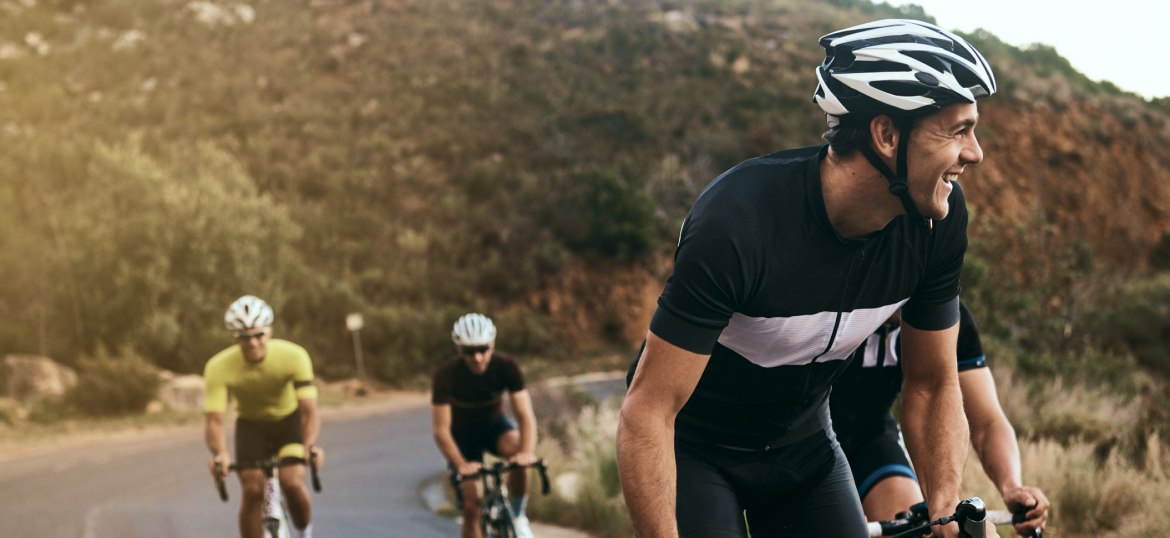
What To Do to Avoid Getting Muscle Cramps During Your Workout
Muscle cramps, a sudden, painful tightening sensation that generally lasts a few seconds to a few minutes, are a common and not 100% understood phenomenon. A recurring problem for some and rare occurrence for others, but highly unpleasant for everyone, they commonly happen during or after exercise, and usually in the calf or thigh. Although the sharp discomfort and ache of cramps normally passes within half an hour at most, the feeling is disarming and there are several ways both to alleviate and prevent it.
Why do we get muscle cramps?
Research has shown that cramps happen due to ‘neuromuscular failure’, when the muscle is too tight and thus over-stretches suddenly, deprived of sufficient oxygen and flooded by lactic acid, causing pain and contractions. There are numerous factors attributed to why you get muscle cramps, such as the compression of nerves in your spine (lumbar stenosis), dehydration, a fitness regime that is more intense than your body’s prepared for, being exposed to very cold or hot temperatures, an old injury, irregular breathing and an inadequate diet.
How can you prevent getting muscle cramps?
Taking time to stretch properly before starting your fitness routine is thought to be key, but the amount of water you drink and the micronutrients you include in your diet are also of vital importance. Starting with hydration, experts advise that apart from keeping well hydrated throughout the day (8-10 glasses of water are ideal), you should make sure you drink before, during and after your workout. Electrolytes, found in coconut water and most glucose-based sports drinks, are also important to imbibe on workout days and ater workouts lasting more than 60 minutes. Alcohol and caffeine are best avoided if you’re prone to getting cramps – not only do they increase dehydration but also make the body focus on metabolising them, making blood circulation less active.
What you eat can make a substantial difference when it comes to avoiding muscle cramps and spasms. Vitamins B6 and B12, vitamin D, E and K are all considered as supreme preventative aids. Minerals such as magnesium, potassium, sodium, iron and calcium are shown to help prevent cramping.
What foods should you eat to prevent cramps?
Foods that are rich in the vitamins and minerals listed above and other micronutrients and macronutrients include:
- Bone broth (magnesium, calcium, and sodium, as well as collagen and general hydration)
- Sweet potatoes (potassium, calcium, and magnesium)
- Coconut water (high in electrolytes as well as calcium, potassium, sodium, magnesium, and phosphorus)
- Avocado (potassium and magnesium as well as healthy fats)
- Greek yogurt (potassium, phosphorus, and calcium)
- Fermented foods & drinks such as kimchi, kefir, pickles and kombucha are high in electrolytes
- Fatty fish like salmon and sardines are rich in calcium, iron, phosphorus, potassium, sodium, vitamin D and magnesium
What’s the best way to help soothe muscle cramps?
Apart from rehydrating yourself, you can also alleviate the pain and spasms that you experience by gently massaging the area for a few minutes using some oil (arnica is particularly soothing) or balm like tiger balm or beeswax balm that you’ve warmed in your hands. Stretching out the cramp is also very helpful, but experts advise you do this gently and only if you’re not causing any further pain. Taking a warm to hot shower or bath is as helpful as using an ice pack on the area of the cramp. If the pain is truly unbearable take a muscle relaxant as well.
Are you getting the right vitamins and minerals to keep you cramp free? By taking a blood test and sending it to our lab, you will receive a sophisticated reading of all your biomarkers. You’ll gain an easy, fast and thorough understanding of what your body is depleted of. Additionally, our experts will supply you with a full list of customised advice on how you can return to your best self both in terms of diet and exercise. Order your test kit now! Sports Performance Test

